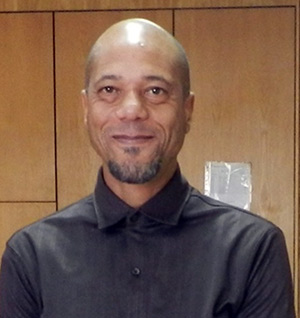College of Human Sciences
Criminal records and social reintegration: Addressing discrimination
Dr Mbongiseni Mdakane, a lecturer in Unisa’s Department of Psychology who is a passionate advocate for social reintegration, shares his research findings regarding the impact of criminal records on individuals seeking employment in South Africa's labour market.

Dr Mbongiseni Mdakane
His study, entitled How much punishment is enough: The criminal record as a death sentence?, sheds light on the discrimination faced by ex-offenders and the need for policies to counteract this prejudice. This article explores the significance of Mdakane’s research and highlights the ongoing efforts to promote inclusivity and equal opportunities for individuals with criminal records.
Education and research background
Mdakane’s academic journey, which began in Soweto where he received his basic education, was filled with challenges and obstacles. However, his resilience and determination propelled him forward. Influenced by his mentor, Mdakane developed a keen interest in psychology and pursued his studies with Unisa, a suitable institution due to its proximity at the time, its affordability and the fact that it offered his desired qualifications.
The central focus of Mdakane’s research is the social reintegration of ex-offenders and the study aims to combat discrimination against individuals with criminal records. It also sheds light on the absence of policies regulating the status of ex-offenders, highlighting the substantial influence of criminal records on hiring practices in South Africa’s labour market. Discrimination based on criminal records restricts access to certain professions and civil functions, perpetuating the stigma and hindering reintegration efforts.
Mdakane’s research has garnered attention from the Criminal Records Coalition Movement and the Ban-the-Box Campaign. These groups form a network of individuals dedicated to advocating for the inclusivity of individuals with criminal records in South Africa’s labour market. Their collective efforts strive to influence policy changes and challenge discriminatory practices.
Community engagement and academic citizenship
Mdakane is one of the co-founders of the Inside-out Outside-in South African Corrections Interest Group. Established in 2013 by a group of students and lecturers from the Department of Psychology, this community engagement project aligns with Unisa’s core pillars of teaching and learning, research, community engagement and academic citizenship. Through their various publications, which include research articles, book chapters, as well as completed master’s and doctoral studies, the Inside-out Project serves as a repository and clearing house where these publications, in the form of recommended or suggested readings, are distributed to other master’s and doctoral students.
Additionally, honours and undergraduate students are introduced and encouraged to attend webinars, conferences and workshops, organised by members of the Inside-out Project, where they are provided with valuable resources and where knowledge sharing within and beyond Unisa is facilitated.
Collaboration for innovation
Mdakane is actively involved in two other notable initiatives. The first is the Ban-the-Box Movement, aimed at implementing criminal record expungement clinics to challenge the barriers faced by individuals with criminal records. The second initiative involves a partnership with eMates!, a UK-based group facilitating digital communication between families and offenders in correctional institutions. These partnerships expand the reach of advocacy efforts and enhance support systems for individuals affected by the criminal justice system.
To foster progress and innovation, Mdakane suggests interdisciplinary collaborations among master’s and doctoral students and their supervisors across various departments at Unisa. By breaking down silos and encouraging teamwork, Unisa’s research output can be enhanced, further contributing to the development of scholarship in other relevant fields.
For regular updates on the Inside-out Project and related initiatives, please visit https://sites.google.com/view/insideoutwikipage/.
* By Katlego Pilane, Department of Psychology, College of Human Sciences
Publish date: 2023/07/10

 Unisa co-hosts G20 community outreach in the Eastern Cape
Unisa co-hosts G20 community outreach in the Eastern Cape
 Unisans gain membership of prestigious science academies
Unisans gain membership of prestigious science academies
 Advocating for disability transformation through servant leadership
Advocating for disability transformation through servant leadership
 Unisa Press continues to illuminate the publishing space
Unisa Press continues to illuminate the publishing space